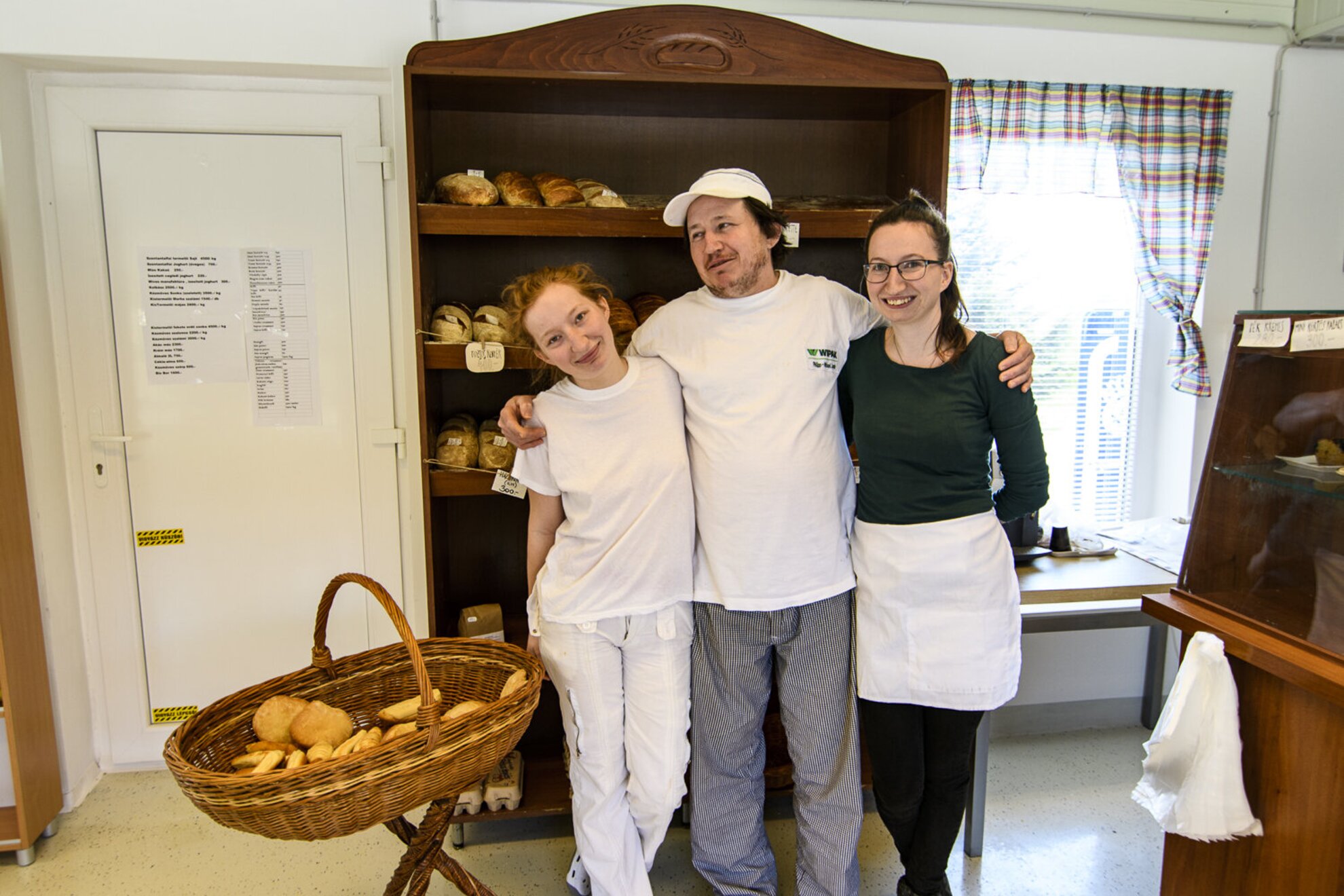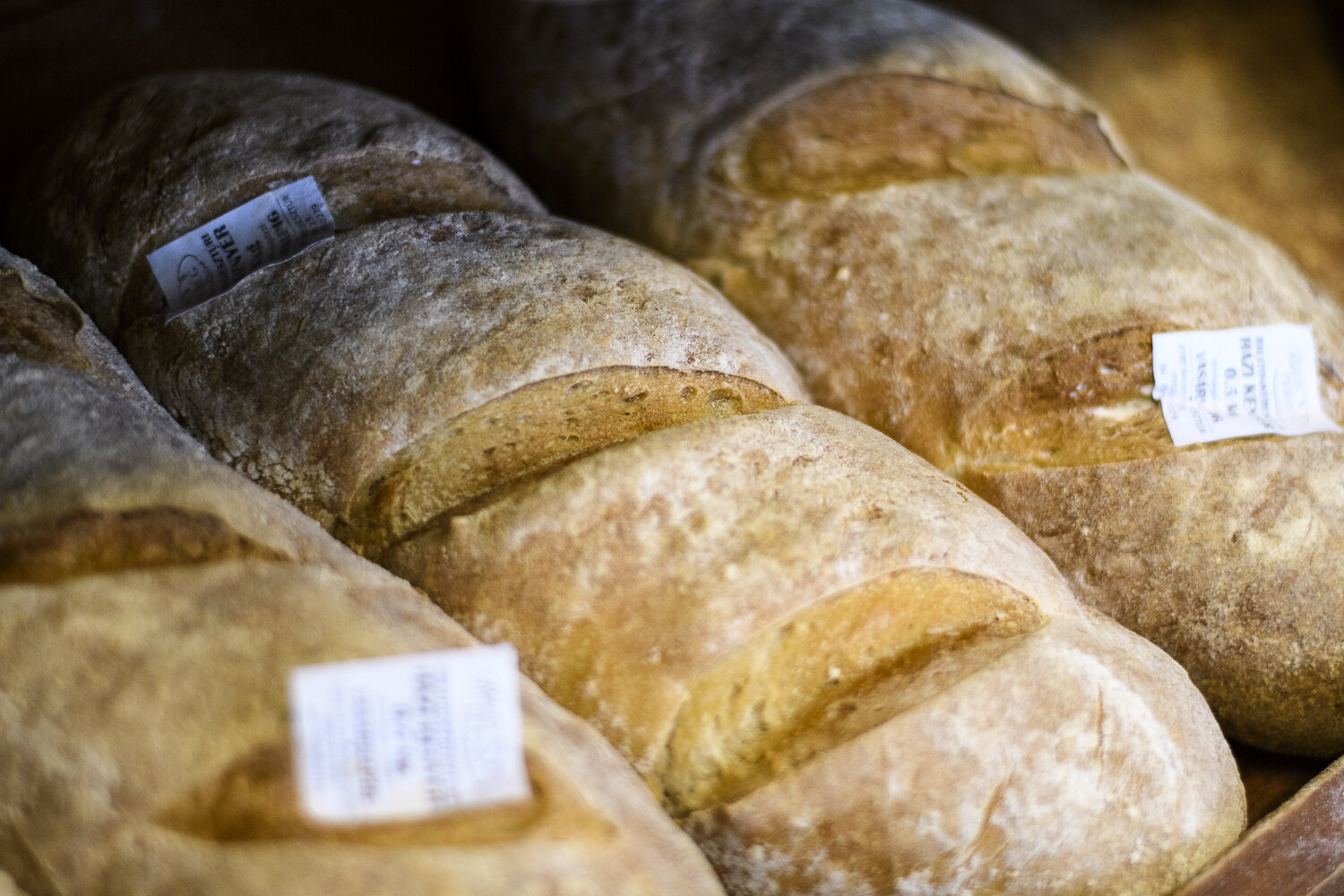It’s one in the afternoon: we have to wait another hour before the baker, József Rácz wakes up, begins work, and then bakes all night, until dawn, until early in the morning. He kneads, mixes, shapes, cuts, braids, shovels, and never stops. It’s still light outside when he starts working early in the afternoon, and when he goes to bed, the sun has already been up for a few hours.
A single stomach is not enough here – that was clear the moment we entered and saw the first few shelves. Fortunately it’s time for lunch, so we are ready to have a cheesy pogácsa (a sort of bread), ischler (a chocolate covered cookie), a chestnut crescent roll, a plum pastry, than a buttery crescent roll with homemade smoked sausage (1/2 kilogram breads cost 250-400 forints; pastries cost 250-350 forints).
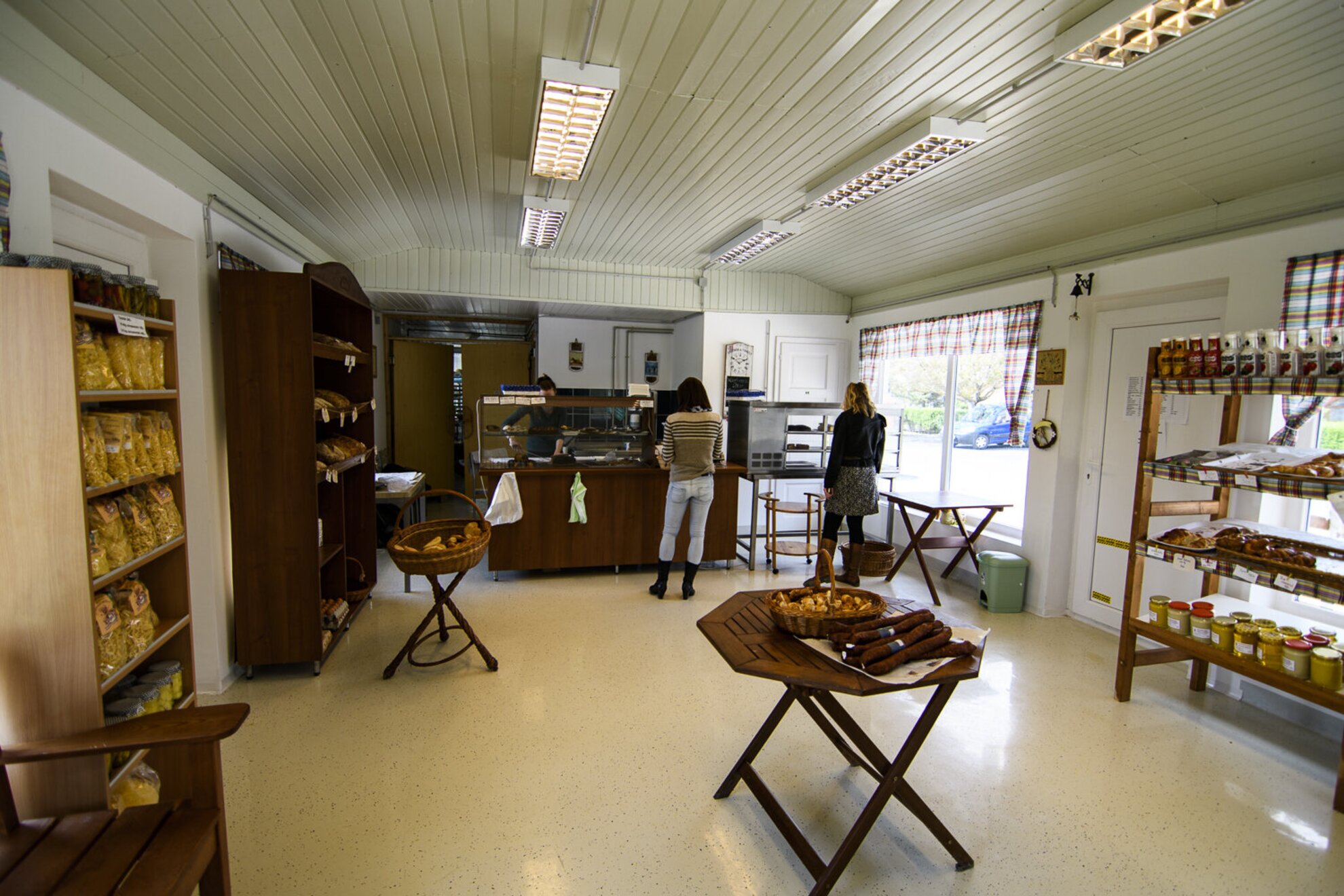
They opened last October, before that they rented a place in Hévíz. It surprised them that the locals like quality bread this much. They knew they wouldn’t have a problem with sales, but they thought that their main audience will be the people who just happen to come by. Besides Hungarians, their regulars include many other nationalities, like people from Germany, Italy, and France, and of course many nearby hospitality units come here as well (like the staff of Fenyves Yacht Club, where the Angus beef patties are served in Józsi’s sesame hamburger buns).
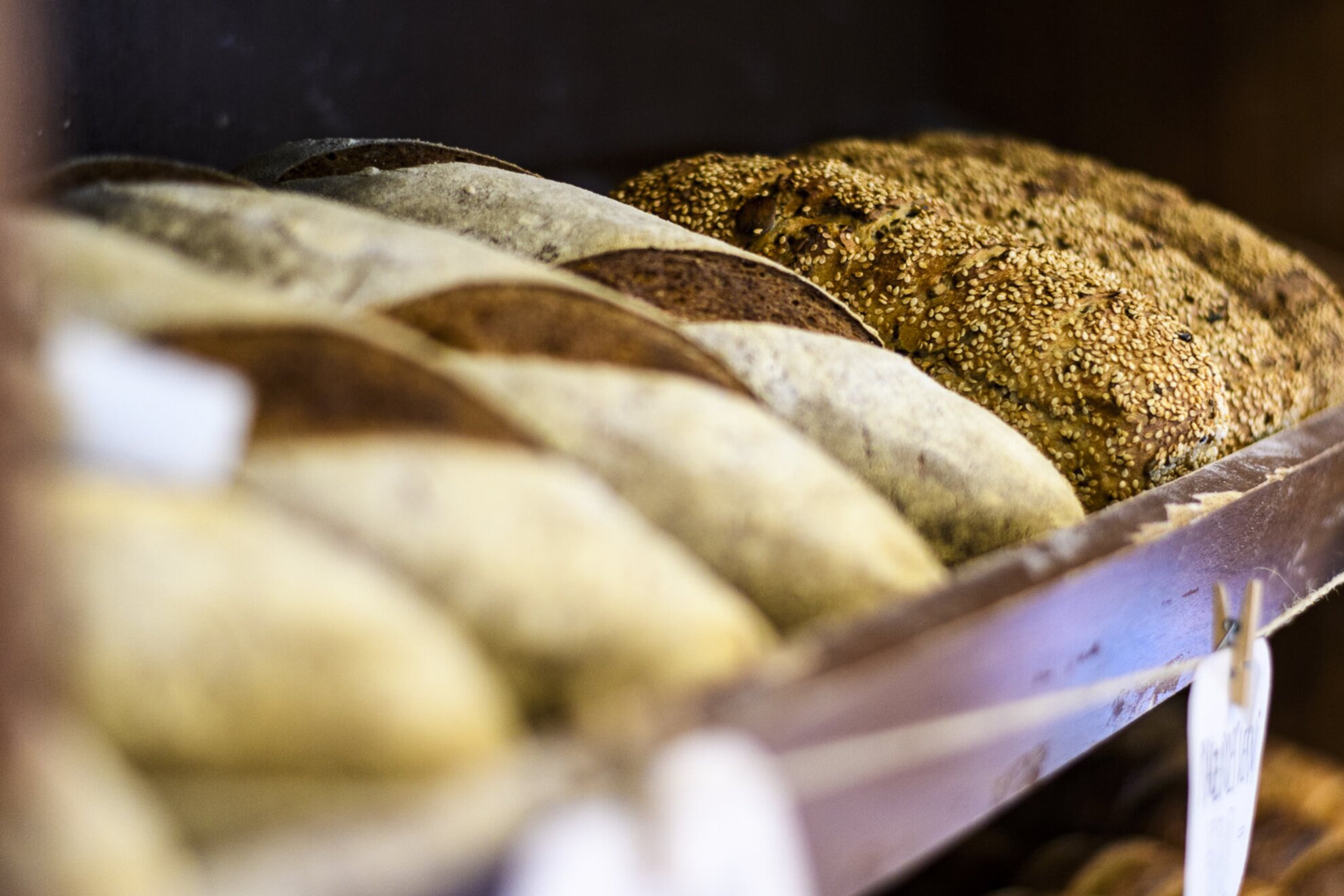
We are lucky, because one of their pastries premiers on the day of our visit: peach and cream cheese in a little basket of cocoa pastry. Meanwhile, we can’t take our eyes off the shiny ischlers, which, according to confessions, have even tempted people who never really cared about this dessert before. Besides breads and pastries, they also sell cheese, yogurt, sausages, and other smoked meats, pickles, syrups, jams, honey, bio-wines, and fruit presses – all of these are artisan products, most of them come from nearby producers.
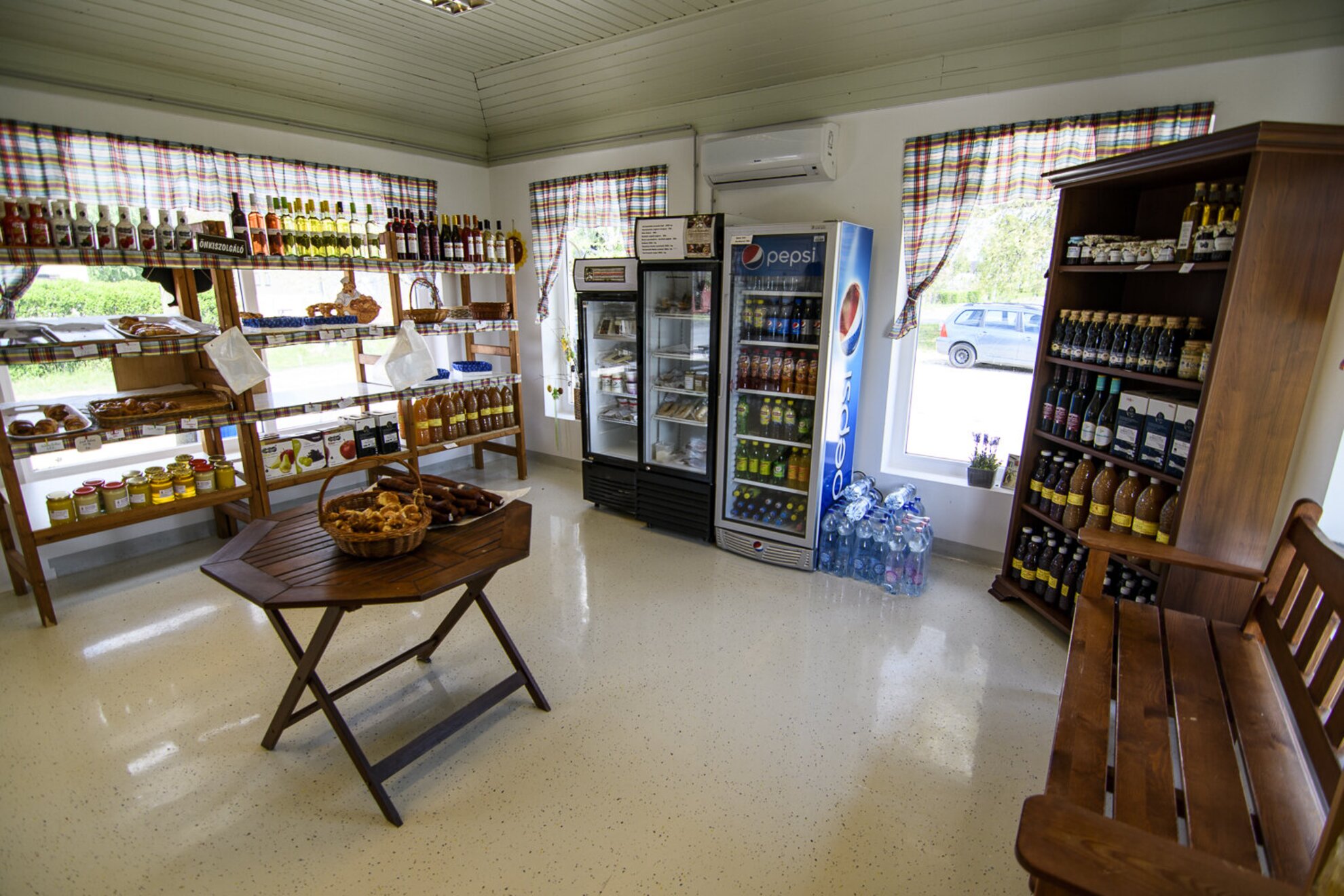
When Józsi comes out in a snow-white T-shirt and striped trousers, his hair is still disheveled, his eyes are sleepy, but he’s already laughing. A cup of coffee, and he’s ready to roll. He starts kneading at three in the afternoon, first the plain bread, then the rye and the whole grain spelt (with pumpkin seeds). He works with sourdough, not yeast. He got the current sourdough from Hévíz: “Then it re-grows again and again. When we opened in Hévíz, we didn’t have bread for a few days because I didn’t have sourdough. I fermented it from flour and water with raisins, and five days later it was all bubbly.”
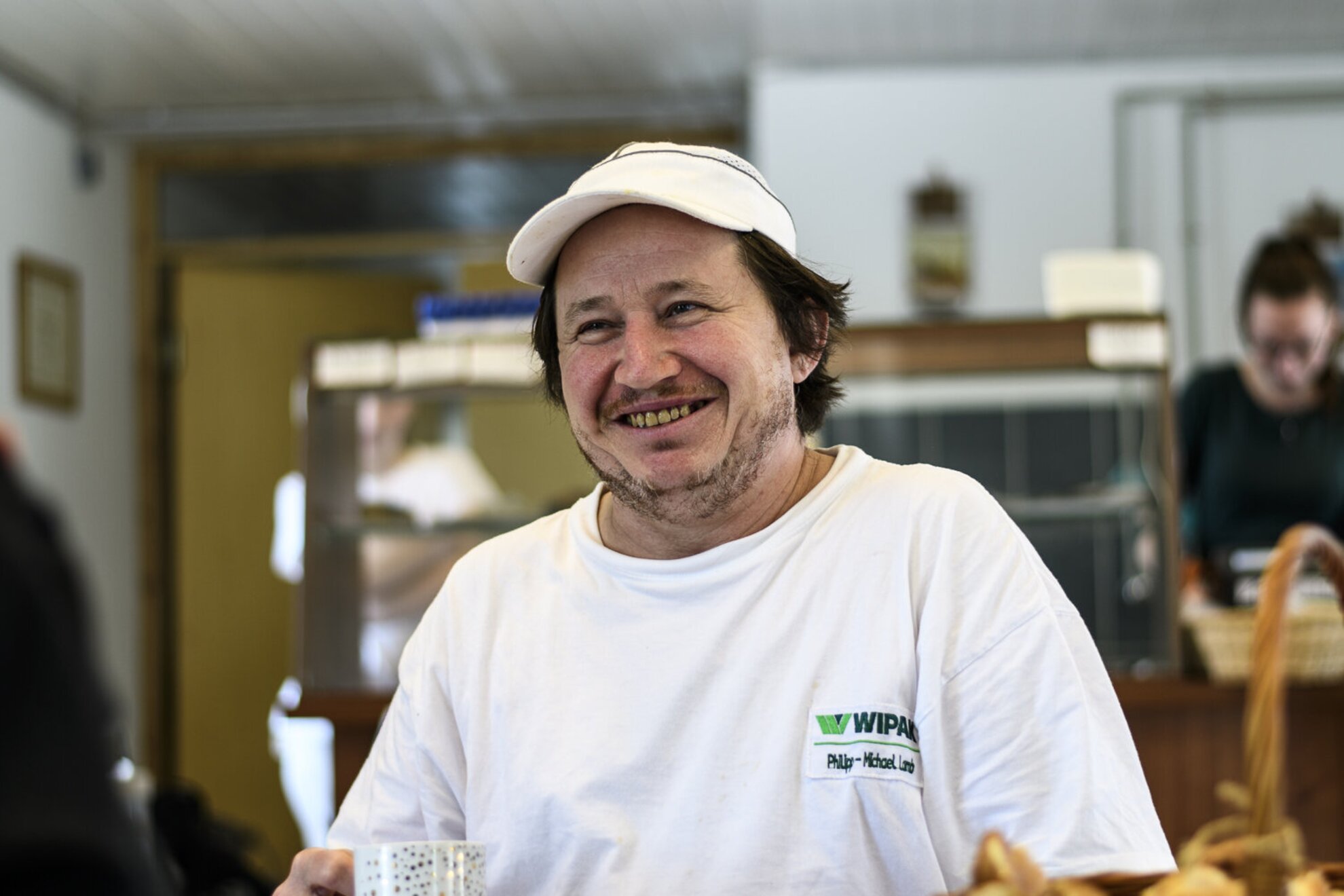
The buns are – as Józsi says – juicy, because they don’t use any additives. That would save time for them, but that’s not what they want. And they don’t save on the milk either, they get is from producers, resulting in the fact that the pastries they have are very, very different than the ones you can get at supermarkets. “Once we ran out of bread, because we didn’t expect so many people to come, and it was all gone. I didn’t want to be quick, because I wanted it to be good. Should I mess it up?”
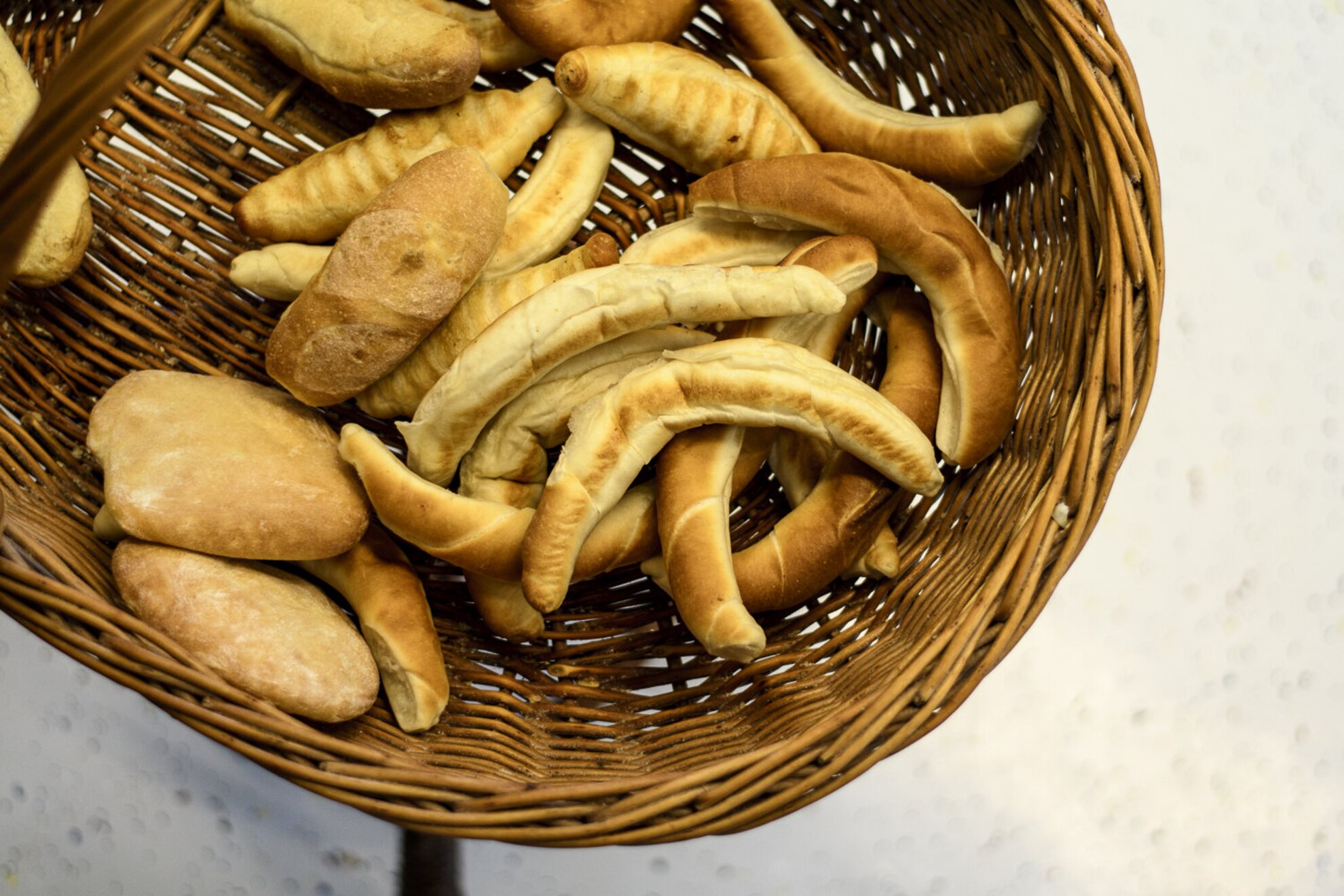
Other than the kneading, they do everything they can by hand. Even Józsi’s youngest daughter, Anna, who just finished the baker training, helps. With her petit and fragile figure and wavy red hair, she looks like someone who just stepped out from a picture book. She wanted to be a baker since she was a little child; she kneaded and baked at home with her father. She’s constantly learning from him while they’re working, she gets to know all the tricks – before Easter, for example, she learned how to braid a brioche.
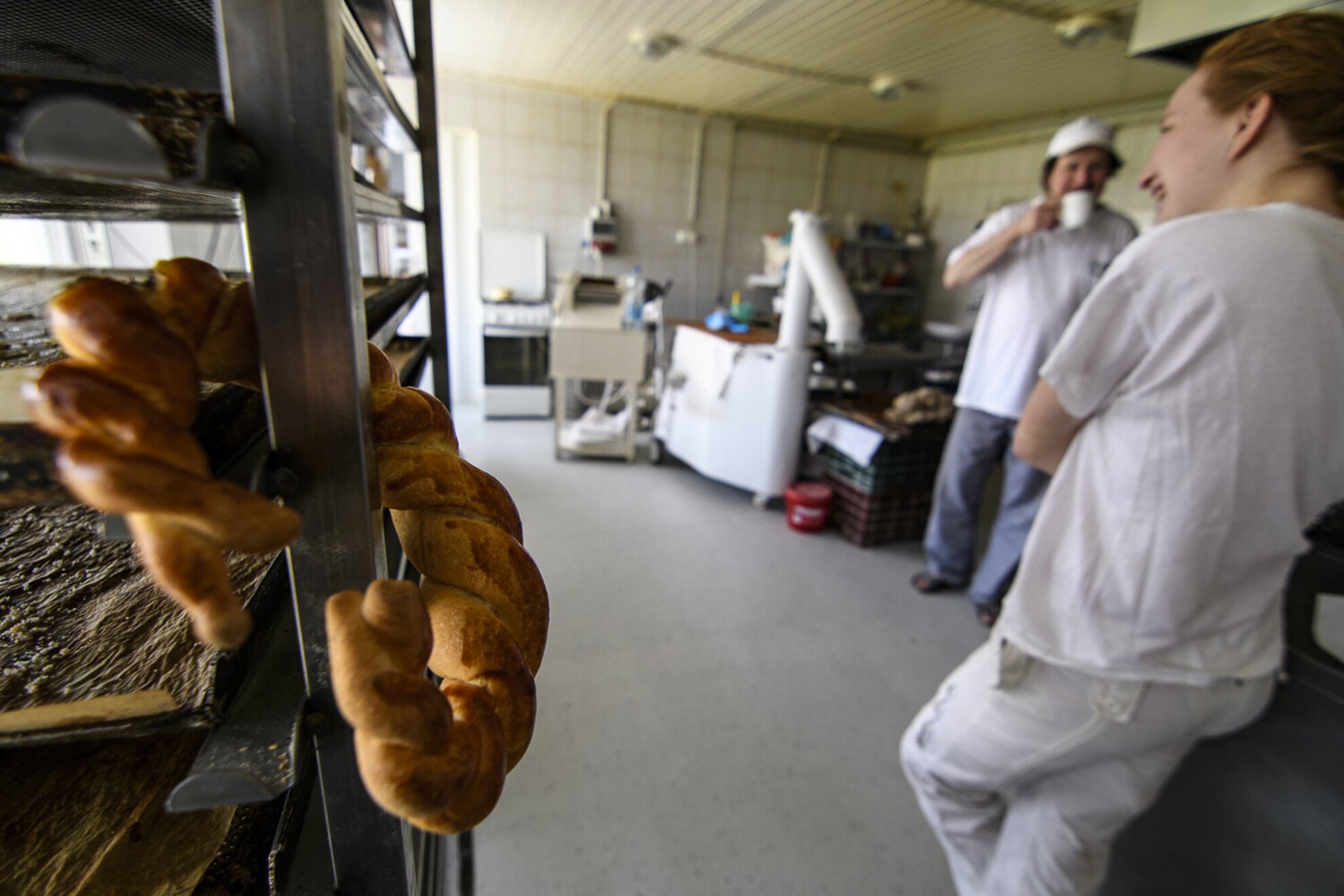
Józsi’s wife, Krisztina, is the other engine of the bakery. Józsi conquered her heart with bread – what else? He was sitting on the bus with a friend of his when he saw Krisztina. His colleague even talked to her, but he didn’t dare to, so in his embarrassment, he handed her the loaf he had with him before getting off the bus.
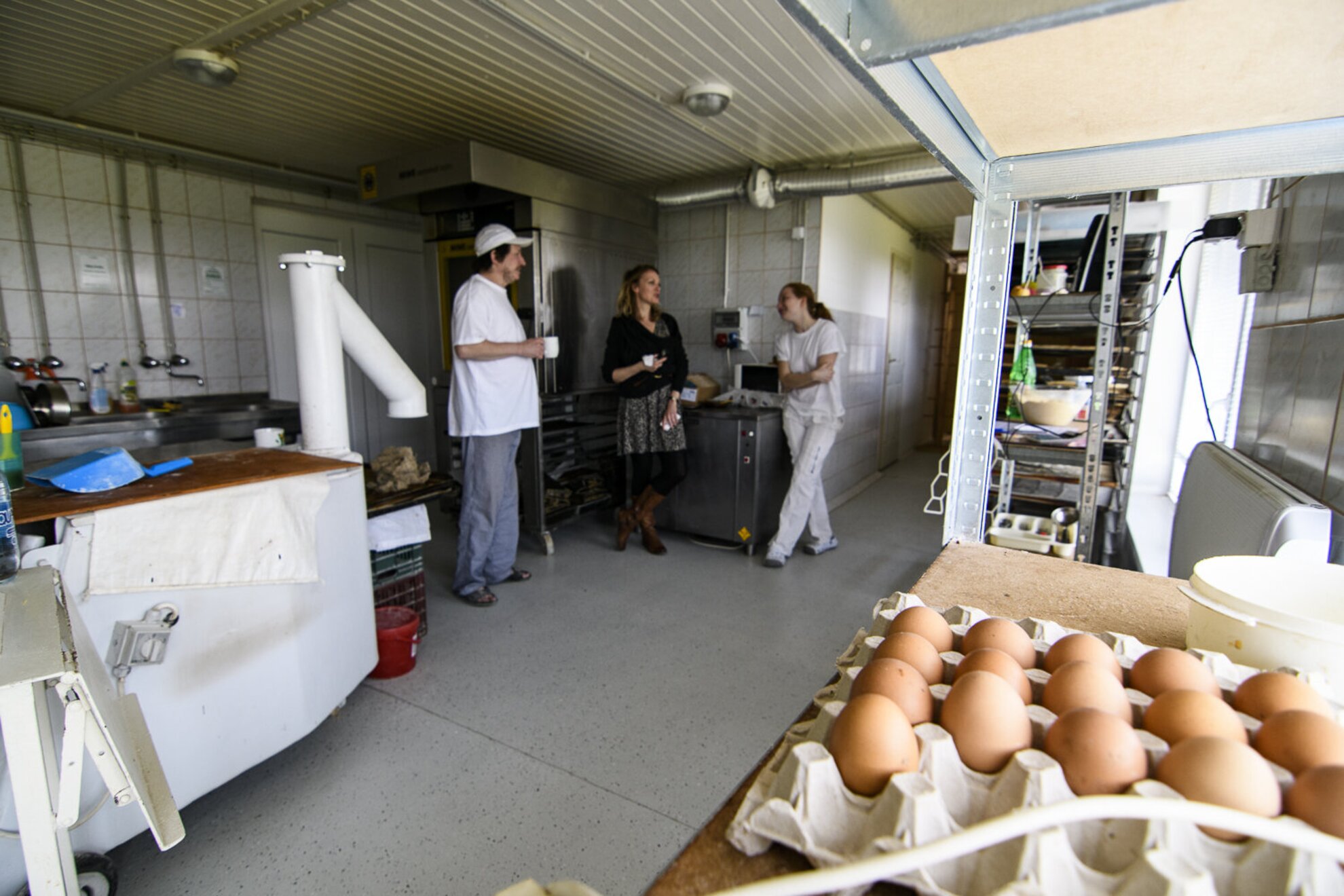
Now he could do the same with a cheesecake, or pastries with chocolate, poppy seeds and plum jam, apple and cinnamon, or chocolate and peach. It would really be a cruelty to say no after the snow crescents or the plum-jam rolls. The ischler is just as good as they said: it’s made according to the recipe of Józsi’s mother; the master baker admits that he also has his limitations, so his apple pie is never as delicious as the ones her mother used to make.
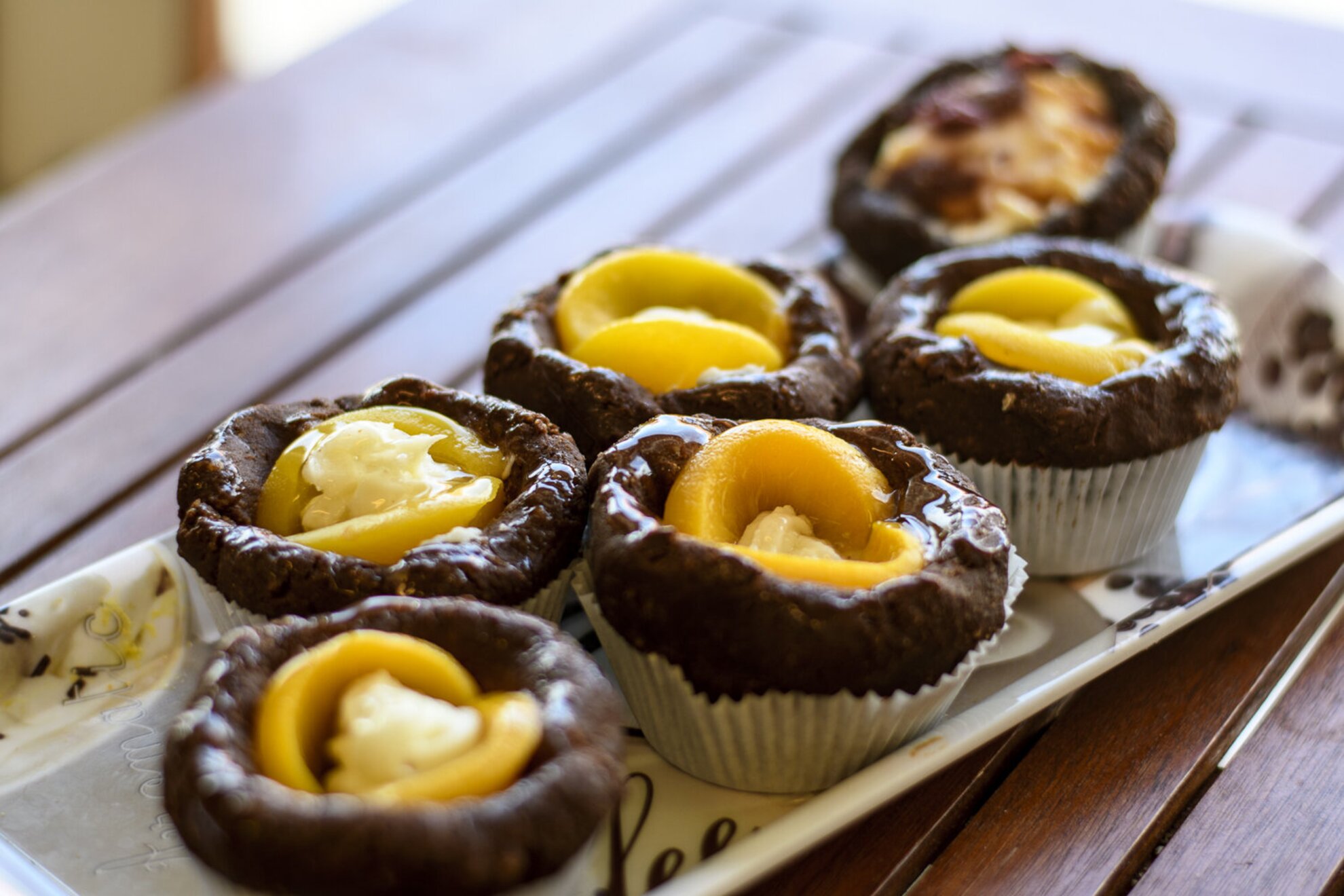
The other crowd favorite is their sandwich: we couldn’t taste it, as they sold out in the morning. They don’t have two identical sandwiches as they always use different fillings.
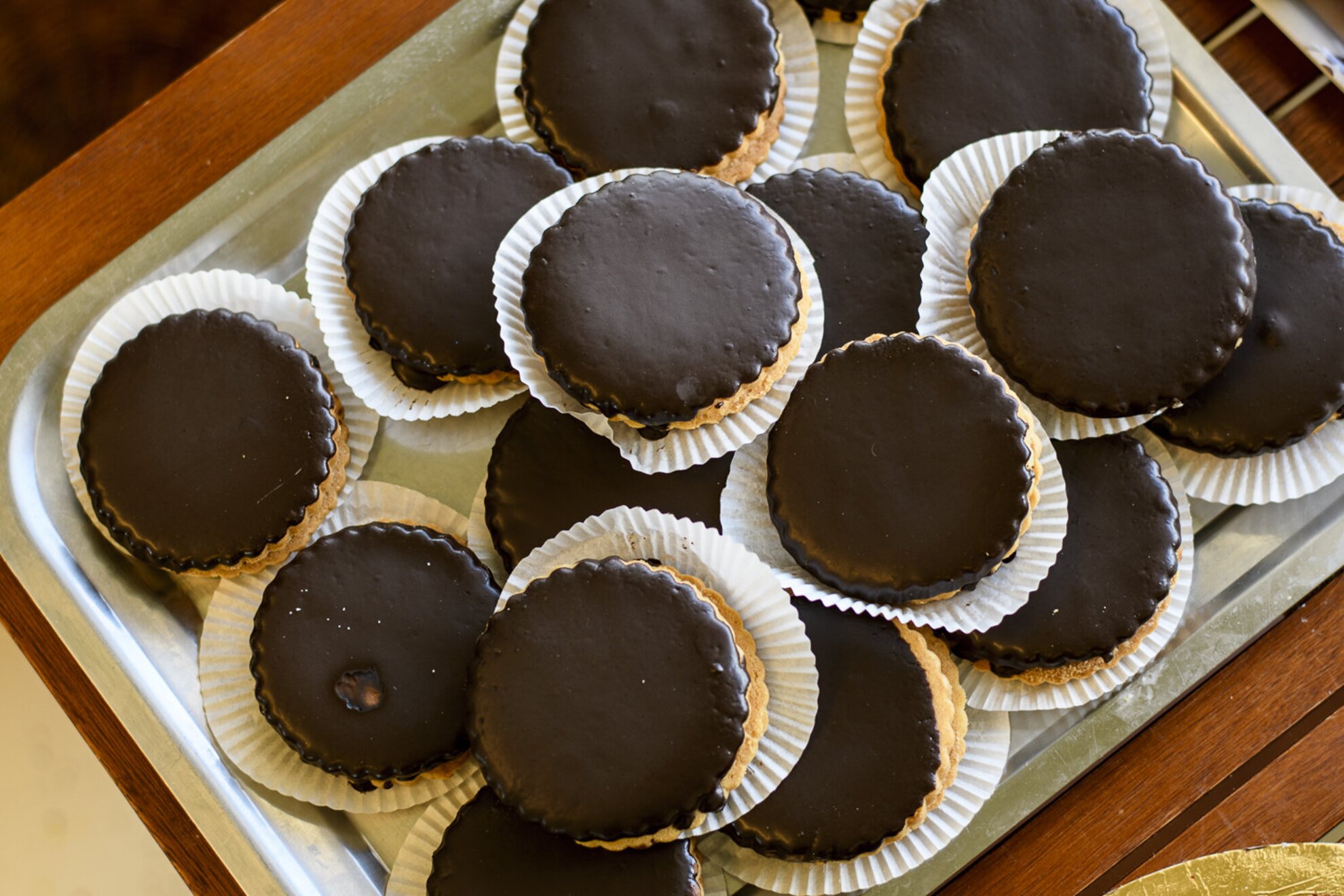
Light floods into the workshop through two large windows, so Józsi and his family can see how nature changes, they can spot the deer, pheasants, and hedgehogs who wander around. We’ve been sitting in the sop for more than an hour, but we can still smell the scent of freshly baked bread.
